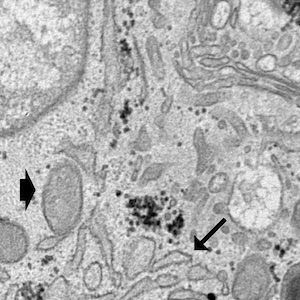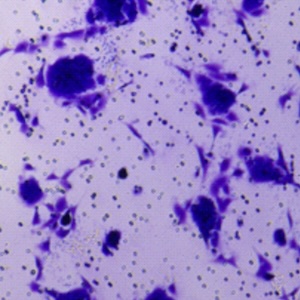Deubiquitinase USP14 is upregulated in Crohn's disease and inhibits the NOD2 pathway mediated inflammatory response in vitro
All claims expressed in this article are solely those of the authors and do not necessarily represent those of their affiliated organizations, or those of the publisher, the editors and the reviewers. Any product that may be evaluated in this article or claim that may be made by its manufacturer is not guaranteed or endorsed by the publisher.
Accepted: 16 August 2024
Authors
The nucleotide binding oligomerization domain containing 2 (NOD2) protein and its ligand N-acetyl muramyl dipeptide (MDP) are crucially involved in Crohn’s disease (CD). However, the mechanism by which NOD2 signaling is regulated in CD patients remains unclear. Ubiquitin specific protease (USP14) is a deubiquitylase that plays an important role in immunity. This study aimed to investigate the mechanism by which UPS14 regulates NOD2 induced inflammatory response in CD and inflammatory bowel diseases (IBD). Our results showed that USP14 protein and mRNA levels in intestinal tissues of CD patients were significantly higher than those in healthy controls. In addition, USP14 was upregulated in IBD mouse model. While treatment with MDP, TNF-α or the Toll-like receptor 1/2 agonist Pam3CSK4 all led to significantly higher mRNA levels of TNF-α, IL-8 and IL-1β in THP-1 cells, pretreatment with USP14 inhibitor IU1 could stimulate further upregulation of TNF-α, IL-8 and IL-1β. In particular, MDP promoted the activation of JNK, ERK1/2 and p38 as well as NF-kB in THP-1 cells, and IU1 significantly enhanced the MDP-induced activation of these proteins without effects on USP14 protein level. Furthermore, the JNK inhibitor sp600125, ERK1/2 inhibitor U0126 or P38 MAPK inhibitor PD169316 significantly decreased the mRNA levels of TNF-α, IL-8 and IL-1β in THP-1 cells stimulated by both IU1 and MDP. In conclusion, our findings suggest that USP14 could inhibit MDP-induced activation of MAPK signaling and the inflammation response involved in IBD, and that USP14 is a potential therapeutic target for IBD.
Ethics Approval
this study was approved by Ethics Committee of Changsha Central Hospital (approval no. 2023036) and all patients provided informed consent, All animal experiments were reviewed and approved by the Institutional Animal Care Committee of University of South China (approval no. 2023094)Supporting Agencies
Natural Science Foundation of Hunan Province of ChinaHow to Cite

This work is licensed under a Creative Commons Attribution-NonCommercial 4.0 International License.








